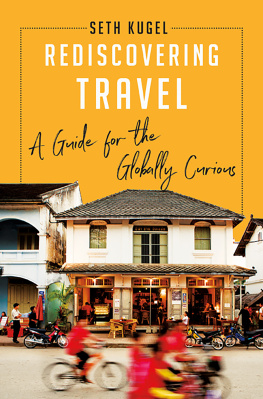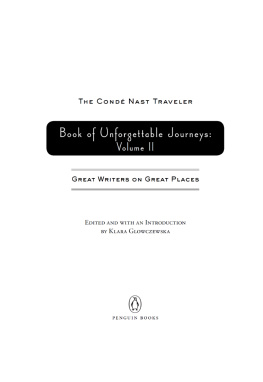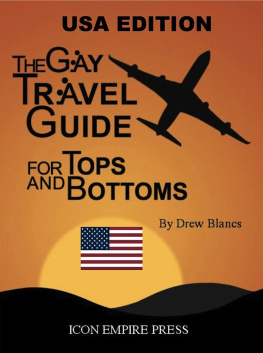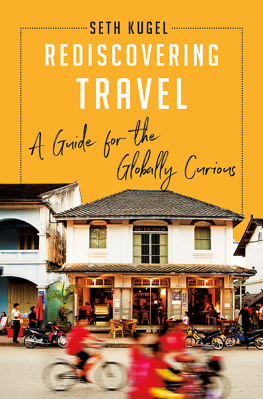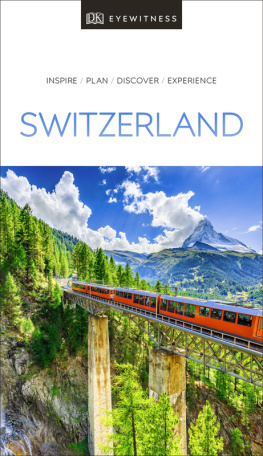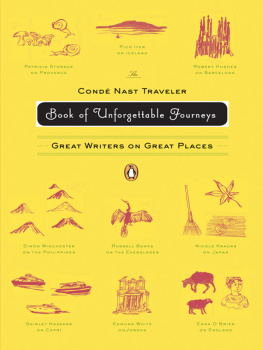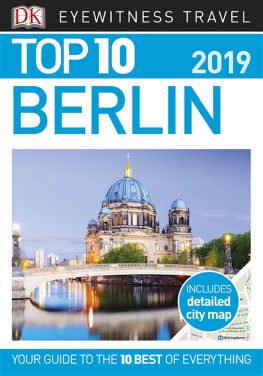
REDISCOVERING TRAVEL
REDISCOVERING TRAVEL
A Guide for the Globally Curious
Seth Kugel

LIVERIGHT PUBLISHING CORPORATION
A DIVISION OF W. W. NORTON & COMPANY
Independent Publishers Since 1923
NEW YORK LONDON
To B and D
Train station in Mezberny, Hungary.
Stenciled in white block letters on a dreary cement wall in Mezberny, a tidy but fraying town of twelve thousand in the hyperbolically named Great Hungarian Plain, appeared the word:
SZESZFZDE
Hours earlier, in the overcast predawn hours of a nippy January day, I had stumbled off the Bucharest-to-Budapest train to see what it would be like to spend the weekend in the opposite of a tourist destination. Mezberny was not just absent from guidebooks. It did not have a single restaurant, hotel, or activity listed on TripAdvisor, something that cannot be said for Mbabara, Uganda, or Dalanzadgad, Mongolia. I did have some info on the town, thanks to its municipal website: Resident Jzsef Halsz had recently celebrated his ninetieth birthday.
Or thats what Google Translate told me. Hungarian is a Uralic language, more closely related to the output you might get falling asleep on a keyboard than to English or German or French. That makes even basic comprehension a challenge, as I found as soon as I rushed from the train to the stations restrooms and faced the urgent need to choose between two doors: FRFI and NOI. The authorities had apparently saved a few forints by not splurging on stick-figure signs.
The day had been born cold and gray and stayed that way as I walked through the town, slowly getting my bearings, intrigued by the prewar, pre-Communist homes and the more than occasional bike riderthere were almost more bikes than carswho waved hello. But then a winter drizzle took up, causing an abrupt decline in the number of cyclists even as the number of wandering American visitors held steady at one. To me, a travel day that turns rainy is like a piece of chocolate Ive dropped on the floor: Its significantly less appealing, but Ill be damned if Im going to throw it away.
It was in the first minutes of rain that I came across the stenciled sign on an otherwise residential street. Beyond the wall, down a cracking, now puddle-pocked driveway, were a dozen or so plastic barrels lined up like nuclear-waste drums. Beyond them, maybe a hundred feet from where I stood, was a one-story L-shaped building. What was this place? Well, SZESZFO ZDE, apparently. But what was that?
In the old days (say, 2009), I would have pulled out an English-Hungarian phrase book or pocket dictionary, but instead I activated international roaming on my phone, carefully spelled out S-Z-E-S-Z-F-O-Z-D-E, and tapped Go.
The less-than-lightning speed of Great Hungarian Plain mobile service provided a dramatic pause. And then came my answer:
DISTILLERY
You dont say.
I would have guessed PRIVATE PROPERTY maybe, or DANGERSTAY OUT, or MIND YOUR OWN BUSINESS YOU MEDDLING FOREIGNER! But a distillery? A wave of adrenaline washed down my torso as my lips curled into a dumb-luck smile.
Two rather gruff-looking men emerged from the doorthe older one smoking a cigarette and wearing a sweater and work-stained trousers that suggested Warsaw Pact 1986 more than European Union 2014. I waved to them, pointed to the bulky Canon 7D hanging from my neck, and then to the building. Old-school Google Translate.
They waved me inside and gave me a tour.

Even for a travel writer, the idea of landing in a small town with no known attractions and no known English speakers, where I had not a single contact and no idea where Id be sleeping, was nerve-wracking. The fact that I had to write a first-person column about the experience for the New York Times a week later added to the pressure. In three and a half years as the Frugal Traveler, I had never been shy about pointing out my shortcomings; if my weekend in Mezberny was a miserable failure, the world would know.
I had been an unlikely choice for the column to begin with. As a longtime freelancer for the Times, I had written almost entirely about New York City. Of the dozen or so destination stories I had been assigned, most were about the Dominican Republic, Mexico, or Brazilcountries I knew well and where I spoke the language. (The two exceptions were Philadelphia, where I also spoke the language, and Curaao, where I did a great job of lying on the beach.)
For a job in which dinner-party acquaintances and Twitter followers alike expect you to spout infallible advice about Roman ruins and Tokyo takoyaki off the top of your head, I was pathetically traveled. I had never set foot in East or South Asia. I had spent a total of a week in Europe since my junior semester abroad in Paris, nineteen years earlier. Even in the far more familiar Western Hemisphere, I was a renowned bungler. My first column recounted how I almost had to cancel my debut trip after leaving my passport on a mens room paper-towel dispenser in the So Paulo airport. (Someone turned it in to lost and found, thus saving my tripand perhaps my careerthough plenty of readers wrote in to ask how such a numbskull had gotten the job.)
According to my editor, I was chosen because he liked writers who traveled, not travel writers. I had spent the previous two years covering every corner of Brazil as a freelance correspondent. But introducing yourself as a reporter makes travel far easier, grabbing peoples attention and opening many doors. The Frugal Traveler column is different: Under strict orders from my far wiser predecessors, I didnt tell anyone I met on the road that I worked for the Times or that I was even a writer (until afterward, if I needed to use their names). I was expected to make friends and have adventures on the basis of my own extroverted personality.
And though I am extrovertedquite so, in factamong friends or speaking to a crowd or interviewing a source, striking up conversations with strangers for no reason whatsoever always felt to me like that first jump off the dock into a cold New England lake.
Even by the Hungary trip, four years into the job, approaching strangers still made me nervous. But at least I had raised my game from utterly pathetic to awkwardly mediocre, and had learned that Mezberny was just the kind of place where jumping into the lake would likely pay off.
One of my most ironclad rules of travel is this: The number of visitors a place receives is inversely related to how nice locals are to those visitors. Mezberny, as far as I knew, had received precisely no foreign tourists ever. It was the anti-Paris, and this distillery the anti-Louvre.
People who inhabit the still-plentiful tourist-free swaths of the planet tend not only to be just nicer, but more curious. They say a bear in the wild is just as scared of you as you are of it. I say people in places where outsiders rarely go are just as curious about visitors as visitors are about them. The question is not why the distillery workers invited mea camera-toting, gibberish-talking strangerin for a tour, its why wouldnt they? If it were me, Id be thinking: What is this odd foreigner doing outside our szeszfzde with a camera? Wait till I tell the kids! And by the way, isnt it about time we took a break?

Once they waved me into the ancient but fully functioning distillery, the men let me take pictures as they gave me a vaguely intelligible lesson via pointing, expressive looks, and smartphone-translated Hungarian, on how
Next page
